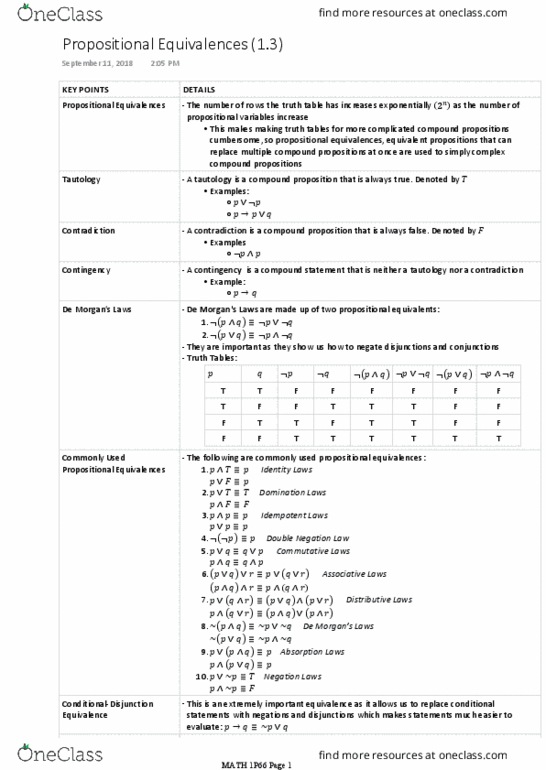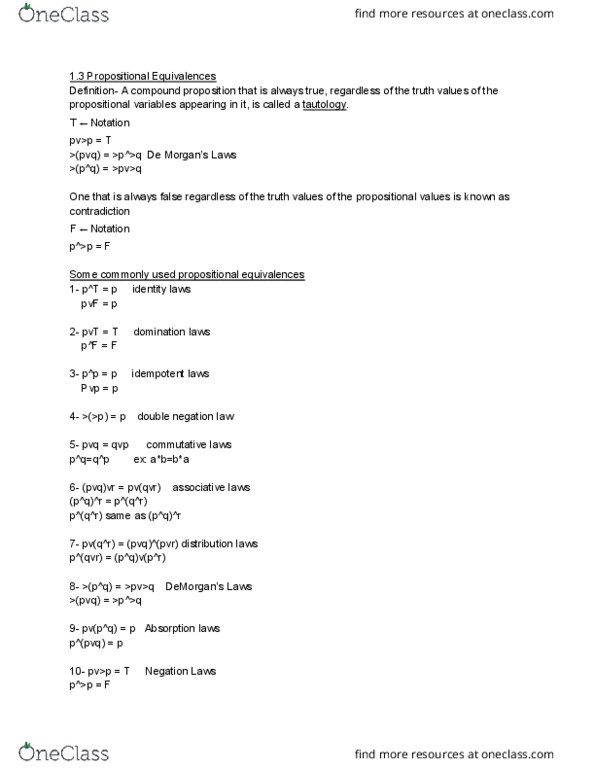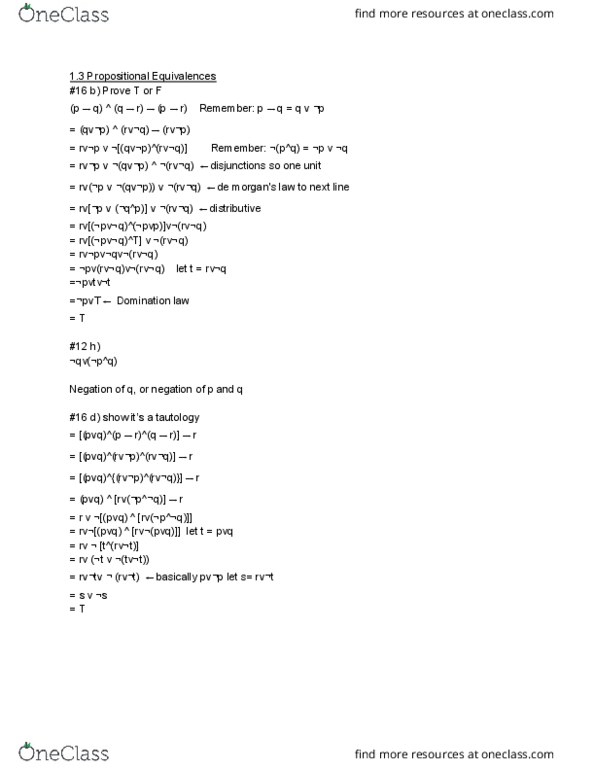MATH 1P66 Lecture 3: Math Lecture #3
MATH 1P66 verified notes
3/25View all
Document Summary
Definition- a compound proposition that is always true, regardless of the truth values of the propositional variables appearing in it, is called a tautology. One that is always false regardless of the truth values of the propositional values is known as contradiction. 1- p^t = p identity laws pvf = p. 2- pvt = t domination laws p^f = f. 5- pvq = qvp commutative laws p^q=q^p ex: a*b=b*a. 6- (pvq)vr = pv(qvr) associative laws (p^q)^r = p^(q^r) p^(q^r) same as (p^q)^r. 7- pv(q^r) = (pvq)^(pvr) distribution laws p^(qvr) = (p^q)v(p^r) 9- pv(p^q) = p absorption laws p^(pvq) = p. 10- pv>p = t negation laws p^>p = f. =t: prove p^(p q) q p^(qv>p) q (p^q)v(p^>p) q (p^q)vf q p^q q qv>(p^q) qv(>pv>q) qv(>pv>p) (qv>q)v>p. #8: yoshiko knows java and calculus p:yoshiko knows java q:yoshiko knows calculus p^q. Yoshiko does not know java or she does not calculus (or both) #10: >p >q (get rid of arrows/condition)




